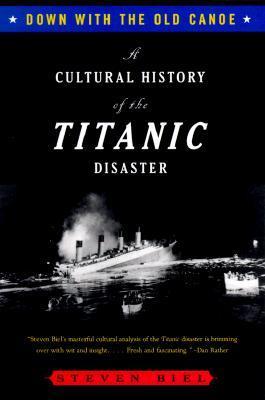What do you think?
Rate this book


320 pages, Paperback
First published January 1, 1996
Traditionalists found in the disaster proof against women’s claims to equality…they also derived reassurance that men, facing a crisis, would not give in easily. “Possibly the time may come when women are to be regarded as no better than men,” gloated the New Orleans Times-Picayune, “but it will be long after the old-fashioned fellows are out of the way.” An advice columnist neatly summarized the traditionalists’ belief that the disaster demonstrated the permanence of gender roles. “In a world jangling today over the parasitism of women, and the triangular love affairs of men, feminism and universal suffrage,” the Titanic had brought home the lesson “that man is eternally the protector of woman” and that “woman accepts man’s protection and obeys instinctively.” Defined against the eternal and the instinctual, changes in gender roles became aberrations. By representing the disaster as a catastrophic return to nature, the conventional narrative made paternalism appear commonsensical and universal.